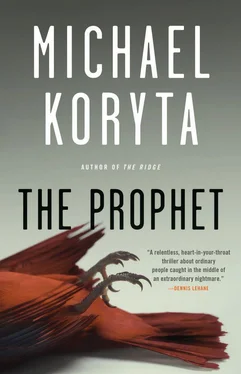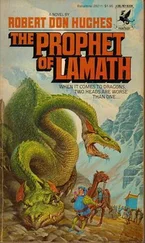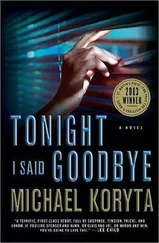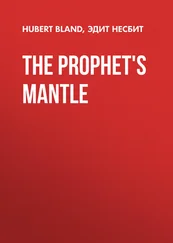“What sort of person punches a cop?”
Kent stopped talking. He stared at Colin for a few seconds and then turned his face back to the field, where the blank scoreboard stood in ghostly silhouette, bare-limbed trees weaving in the wind beyond, and, out farther, the gray-on-gray line of the horizon, Lake Erie.
“Adam has some issues with his temper. Always has.”
“The police went there looking for something, and he didn’t want them to find it. He punched a cop, Coach. Who does that? Instead of helping them, he tried to stop them. Why didn’t he want them there? Why didn’t he—”
“They were going through my sister’s things,” Kent said, and his own voice was angrier than the boy’s, it was his lace-up-those-shoes-and-head-for-the-bleachers voice. “That’s one of the things you don’t understand, son, and you should begin to consider them before you start theorizing. Tell me this—how would you feel if someone started going through Rachel’s room without explaining it to you? That’s how Adam felt. I’m not defending his reaction, and I won’t. It was a poor choice. He’d admit that. But he’s got some problems with his temper, and the police found a sore spot. That’s what happened. That’s all. He’s as committed to helping find this guy as anyone, Colin. I can promise you that.”
Colin nodded. “Okay. It just… it surprised me.”
“It shouldn’t have. You understand the situation better than most. Rachel went to see him asking for help and she… she was less than truthful. You already know this.”
“Yes, sir. I just wondered if he knew something. If you knew something. Because if there’s anything you can tell me, it would help so much to have an idea of what’s—”
“Police don’t make a practice of sharing information with civilians. I know that it’s hard. Remember that. I’ve been there. I wish to God you weren’t there right now, but there’s no stepping backward. We put our heads down and move forward. That’s the only choice.”
“I’m trying.”
“I know you are. It’s not a matter of effort, son. It’s not something you can control.”
The tennis ball slipped from Colin’s hand. He tried to catch it on the bounce, missed, and then it rolled under his car. Kent blocked it with his foot, picked it up.
“How many of those have you done?”
“Had three thousand when you came out. Lost track then.”
Kent had been ready to head home, but he looked at the kid now and then tilted his head in the direction of the locker room.
“Let’s watch some video, shall we? A lot to work on.”
Colin slipped off the hood of the car and they walked together into the locker room.
“You want to see Adam?” Kent asked, the words out of his mouth without a thought.
Colin looked both surprised and afraid. “Talk to him?”
“No. I mean on tape. See the kind of player he was.”
The kid looked anything but enthused, but he said, “Sure.”
“I’ll just show you the last drive,” Kent said. “Then we’ll look at Saint Anthony’s.”
He wasn’t sure why he wanted Colin to see it so badly. Maybe it was just a chance to leave a different image in the boy’s mind from the one on the front page of the paper. That image wasn’t fair to Adam, it was a preserved lie, nothing more.
The man’s name is Clayton Sipes, Kent wanted to say. He killed her, and I brought him here. It’s got nothing to do with Adam.
He couldn’t say that, of course. He could play the video, though, could show Colin what Adam had been once, before he’d been the man in handcuffs and bloodstains on the front page. Kent hadn’t watched it in years. He didn’t like watching it. Hadn’t even at the time, really; the only person in that stadium from Chambers who had not enjoyed every moment of the championship-winning drive was now their head coach. He’d had the tape converted to DVD years earlier, and now he slipped the disc into the player and turned on the projector and then it was 1989 and the Cardinals were playing Angola Central, the unbeaten and top-ranked Tigers.
“He played both sides of the ball. Fullback on offense. Best blocking fullback I’ve ever seen in high school. If you stayed behind him, you’d gain a lot of yards without breaking a sweat.” He fast-forwarded through the first three quarters—Chambers had scored first, Angola answered with two in the second quarter, then fumbled to start the third and Chambers converted and it was all tied up. The Tigers made a beautiful drive, meticulous and precise, put it in the end zone early in the fourth and then went for two and got stuffed: 27–21 with 10:41 left in the game.
“Here we go,” he said, and pressed PLAY.
The Chambers return man botched the kick, then got lit up and driven into the turf at his own four-yard line. The Angola fans were going crazy, and on the sidelines Walter Ward stood with his arms folded and his eyes flat. Kent was there, too, clipboard in hand, and he remembered that he’d felt sick, that he was suddenly just fine being the backup.
“What you’re about to see,” he said, “is not the brand of football we play. But it worked.”
Adam was the last one out, his teammates already lined up as he entered with trademark slow swagger, a gentle bounce to his step, shoulders swaying side to side, head bobbing.
“Promise package,” Kent said. “That’s what this was called.”
One wide receiver, split out right, one tight end, and a three-man backfield: two tailbacks, one left and one right, and a fullback ahead of them, a fullback who would never touch the ball, who was there just to lay the wood. That was Adam.
“Why ‘promise package’?” Colin asked.
“Because we never lied out of it. Never tried to fool the defense. It was Coach Ward’s baby that year. He loved it. From the first practice, he told us that we would never give them anything but what they expected when we went to that formation. It was a psychological thing, it was pure intimidation. We were saying, Here we come, and you can’t stop us. The fullback is Adam. We called him the prophet. Those were the plays—prophet left and prophet right.”
“Prophet?”
“When he took the field offensively, he told the defense exactly what was coming, that we intended to run it right down their throats.” The name caught on Kent’s ear now, though, it called up a memory of Clayton Sipes: If Gideon was the sword, then I’m the prophet.
Colin said, “Coach? What are you thinking?”
“Nothing,” Kent said, but what he was thinking was that he’d talked about this play in his visit at Mansfield, he’d talked about this season and this play and the way being steadfast and diligent led to victory, the way you had to absorb the hits and shake them off. Prophet right, prophet left, he’d explained it all, explained the reward of the grind, the reward of endurance.
Colin’s stare brought him back, and he tried to shift his mind from Sipes to football.
“It was a strange approach, because usually you treat play calling like a chess match. Out of this set, though, Coach Ward wanted it to be clear to every team that we were essentially saying, Stop this if you can. They usually couldn’t, and that’s the height of frustration for a defense. It breaks you down. Physically, sure, but more so mentally. Once you break their spirit, you own the ballgame.”
First snap, and on the first run, Adam caught a linebacker who was standing too high, planted him in the turf, and Chambers was out to the twelve already, eight yards on the play.
“Wow, he could hit,” Colin said.
Kent nodded. “Big kid, but just hard. Not gym muscle. There’s a difference. You know that. Some guys are naturally hard. Coach Ward always called it loading dock muscle.”
Читать дальше












